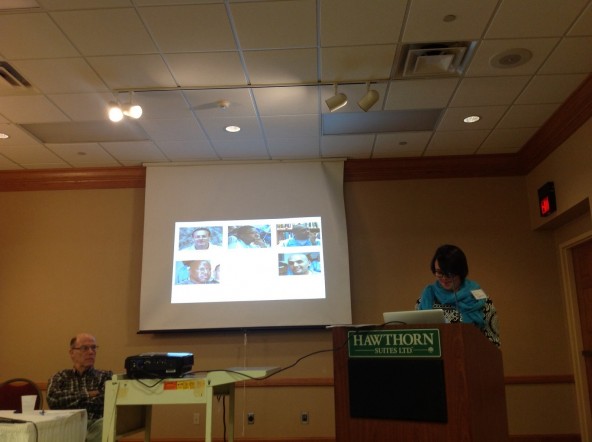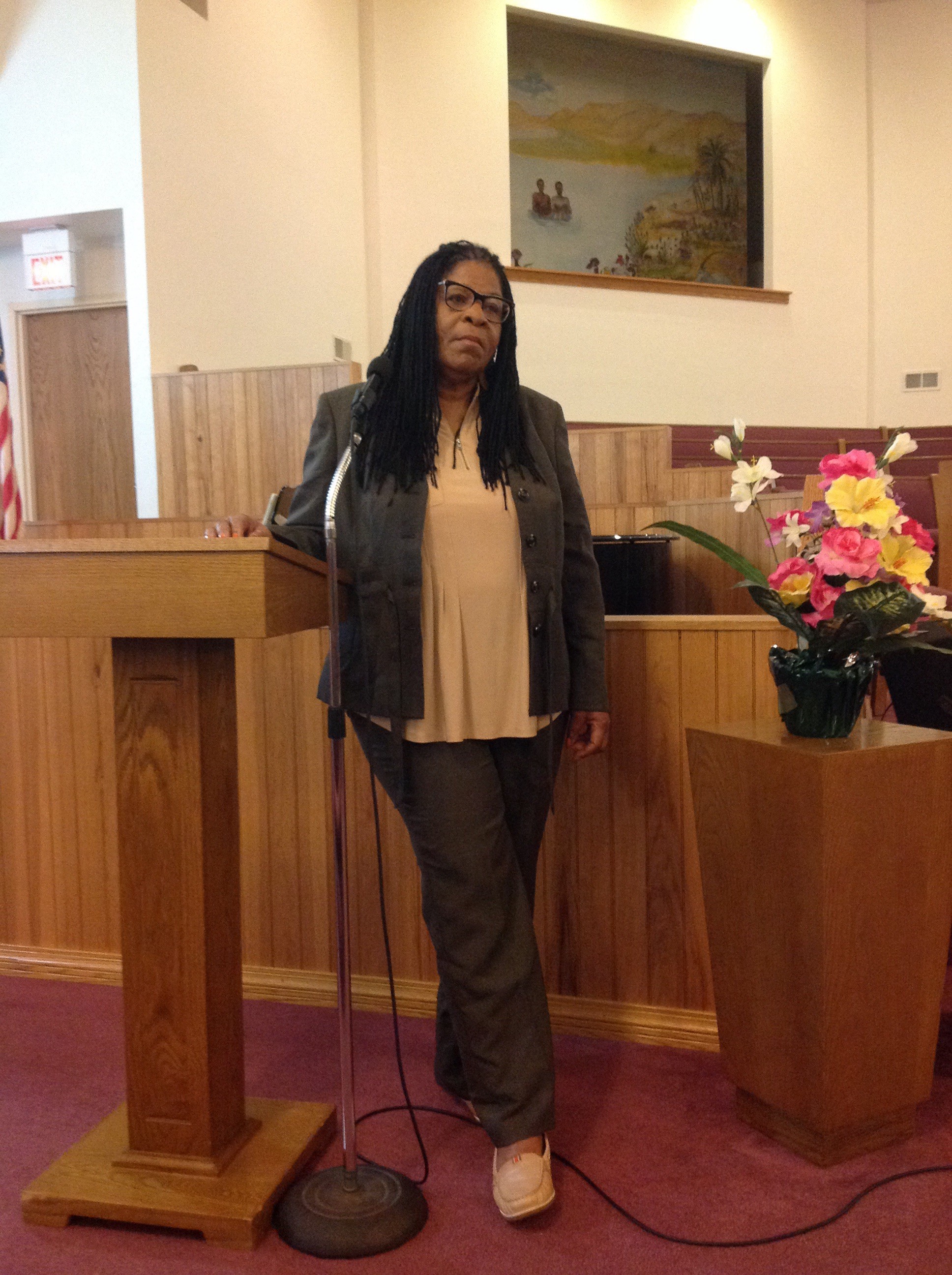
Erin Castro, up first, talked about working with scholars on the inside (pictured above with her students on the screen) and said that she presents her scholarship at national conferences and has a manuscript under review, an ms. completed with those same students. Nationally, she noted, we are not so advanced and said that only 6% of such potential scholars have access to post secondary education. But the surprise is, such education not only reduces recidivism, it is transformative education, per Paulo Freire. We cannot leave out the voices of the people inside.
After Erin, Ed Wiltse asked if prison education can return the university to core values? He said that from teaching behind bars with a mix of university and incarcerated students, the lessons he’s learned include: 1) who’s classroom, our classroom; 2) voice and authority means everyone’s 3) who’s text, our text. He then turned to Dewey: The community’s purpose is to educate and move forward.
James Kilgore (pictured above on the left) said his commitment to mass incarceration comes from his heart, and from being incarcerated as well as an educator. So when he began to cry, he moved us all. Then Wham: “I was an educator before I went to prison.” When he was in prison he wanted to teach other prisoners but the person who ran education in prison said only if you sit people in their race groups. He refused – this was a man who had been to South Africa and fought against Apartheid– so he said to that teacher, “I will get them to agree.” And the men did. From this and from his own amazing experience with EJP, he concluded: the movement of the oppressed must be lead by these who are oppressed.
Carl Walker said in some ways he felt incarcerated in higher education with a program called “college to careers.” An audience member responded to the racial segregation so enforced in prison by saying that educators need to turn to their students inside because, “We know how to navigate that space.”
In a session on peer instruction in the prison classroom, professor Jennifer Drew, mentioned that a Spanish language instruction program at BU was begun by Jose Duval, formerly incarcerated student, who spoke by phone at the conference from the Dominican Republic. One of the difficulties of being a peer tutor in the prison classroom is not being seen as a cop. But knowing the subject , he said, was not always as difficult as knowing how to convey the message. Then, Jennifer Drew, who used to run BU higher ed, was supposed to be the prof but she had students teach Spanish because they knew the language. An interesting moment for Jose was when some of the guys wanted him to tell them some of the answers on the test. But they eventually, were able to see that the tutors were serious.
Augie who was a peer instructor in an EJP carceral setting and was in an ESL program called Language Partners, said it was initiated by a person behind bars. He felt that there was stress on his “free partners” who had to find online resources for them, because as peer teachers inside, they were not allowed resources available on the outside. He read a paper by Elfuego Nunez who teaches, i.e. is a peer tutor, on the inside. Nunez said that he had a lot of desire to help men speak English because they wanted the power to talk to their doctors, read to their kids, and learn. For him, teaching was a honor, and while the work was voluntary and not eligible for good time, it was worth it.
The last session of the day that I went to was on Literature, and it included Sarah Higinbottom and Bill Taft from the Common Good program in Atlanta. Discussions of students gaining from making their own books, engaging in challenges such as Milton and Shakespeare are up my alley. I talked about the work I did at Framingham Women’s Prison, directing plays, showed a clip of Merchant of Venice and then poured my heart out about Changing Lives Through Literature. What a day.




